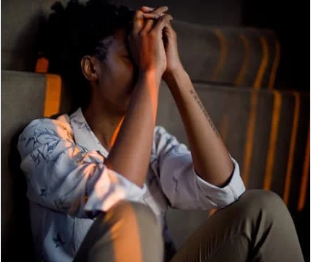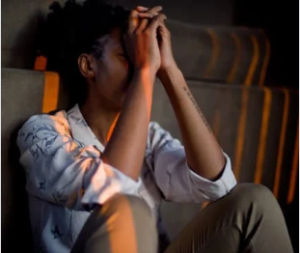Research shows Black women experience depression differently lending to poor or no treatment


The Nursing Research journal recently published a study that suggests Black women may experience depression symptoms that are often “poorly recognized and undertreated” by the larger medical community.
Black women are ‘more likely’ to experience depression as stress or self-criticism.
The study, which focused on data from 227 African American women, was centered on “explor[ing] depressive symptom phenotypes” within this demographic. As opposed to more trademark symptoms, Black women can experience higher levels of self-criticism, sleep disturbances, and irritability, per NYU research.
“I founded Black Girls Smile, a mental health nonprofit, because my experience with patients supports the conclusion that,” said Lauren Carson regarding these findings.
As Black women and girls, we are more likely to experience what’s called psychosomatic symptoms – meaning that we manifest stress, anxiety or trauma in our bodies.
She also shared that Black women dealing with depression or anxiety experience migraines, gastrointestinal problems, and muscle tension at higher rates than other demographics.
“The information we receive for diagnosing doesn’t always fit these marginalized demographic groups.”
There is not complete agreement about what symptoms are indicative of depression.
“Underdiagnosis and undertreatment can result from these differences.”
“It’s possible that health care providers may miss depression symptoms in Black women, resulting in underdiagnosis and undertreatment,” noted Dr. Nicole Perez, lead author of the study.
”
I hope that these findings will help to contribute to the growing dialogue about how depression can look different from person to person, and that it will raise awareness about the need for more research to be done in historically understudied and minoritized populations.
“We need to take action,” Perez said, “so that we can better identify symptoms and reduce missed care and health disparities.”
Psychological Well-Being
The “strong and resilient” black woman stereotype can actually have a negative impact on psychological well-being.
An explanation about why some of these differences occur was offered in addition to exploring disparities between symptoms. The study specifically shed light on how expectations for Black women to be “strong” can lead depression to manifest as self-criticism and people-pleasing.
“It’s not emotionally safe to simply be sad or hopeless, which are some of the hallmark symptoms of depression,” observed Meghan Watson, founder of the Bloom Psychology & Wellness center in Toronto.
“I think one of the reasons I attribute people-pleasing to depression is that, from my understanding, it is not emotionally safe for black women to simply be sad or hopeless – two of the hallmarks of depression.”
What are your thoughts on these findings?





